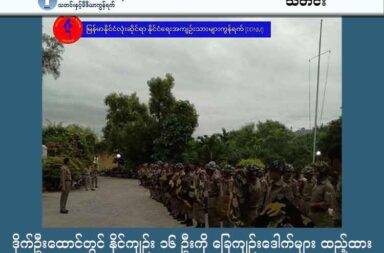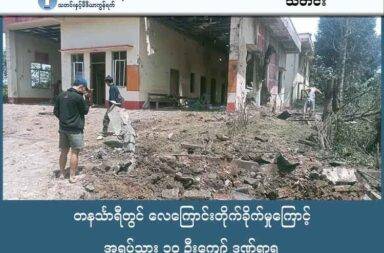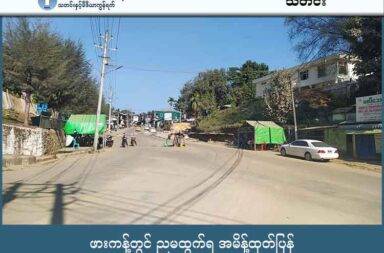Trafficked Girls ‘Treated as Less than Human’: Yanghee Lee
The United Nations special envoy on human rights in Burma said she was distressed and terrified by some of the reports she heard.
By NETWORK MEDIA GROUP
Wednesday, July 24, 2019
Yanghee Lee, the United Nations special rapporteur on the situation of human rights in Burma, has lamented the effects of conflict on many of the country’s women and girls, saying that some have been reduced to a status that is “less than human”.
“Years of conflict in northern Shan and Kachin States has left families in financial desperation, making women and girls vulnerable to human trafficking. Those displaced by fighting and living in IDP camps are particularly at risk,” she said in a statement released on July 18.
She made the remarks at the conclusion of a trip to Thailand and Malaysia to meet with activists, ethnic leaders, and others familiar with the human rights situation inside Burma. Despite her mandate from the United Nations, she has been denied entry to the country.
In her statement, which also highlighted a host of other issues, including land disputes and the situation of Burmese refugees in Malaysia, Lee spoke of her reaction to the treatment of vulnerable women and girls.
“I am distressed that on this mission I received reports of women and girls, some as young as nine, being trafficked from northern Myanmar to neighbouring countries for sex work,” she said.
Anti-human trafficking activists said that many women living in conflict-affected areas, including internally displaced persons (IDPs), are especially vulnerable to exploitation due to their extreme poverty.
“The reason is related to their daily struggle for survival. Women in IDP camps are trafficked, and they suffer both mentally and physically,” May Zin Oo, an anti-human-trafficking activist based in Muse, a town on the Chinese border, told NMG.
In many cases, young women and girls are promised jobs, but soon become victims of human trafficking who are denied even their most basic rights.
“Brokers bring underage girls to the border area, telling them they can find work there. But when they arrive, they aren’t paid anything and sometimes they’re tortured. Some simply disappear,” said Lway Chi Sanga, a spokesperson for the Ta’ang Women’s Organization, noting that some of these girls are as young as 13.
Rights groups say that the situation is worst in areas where IDPs are denied adequate assistance due to restrictions imposed by the government and the Burma Army.
“Many IDPs have to seek work because they don’t get enough assistance. This is because the government and the army deny relief workers access to IDPs in areas controlled by armed groups. So many IDPs look for work in neighboring China and end up being forced to work, or forced to marry, or forced to bear children,” according to Maran Bawk Ja, speaking at a press conference last month for the launch of the human rights report, “There Is No One Who Does Not Miss Home”.
According to Maran Bawk Ja, food and other material support for IDPs has declined since 2016. As more and more leave their camps in search of work, the number of cases of human trafficking is increasing, she said.
In one of the more horrific examples of abuse, Lee spoke of a woman who was forced to bear 18 children by different men over the course of 20 years of captivity in China.
“It terrifies me to think of how many other women may be in similar situations; treated as less than human, held captive for decades, and uncontactable by their families,” she said in her statement.


